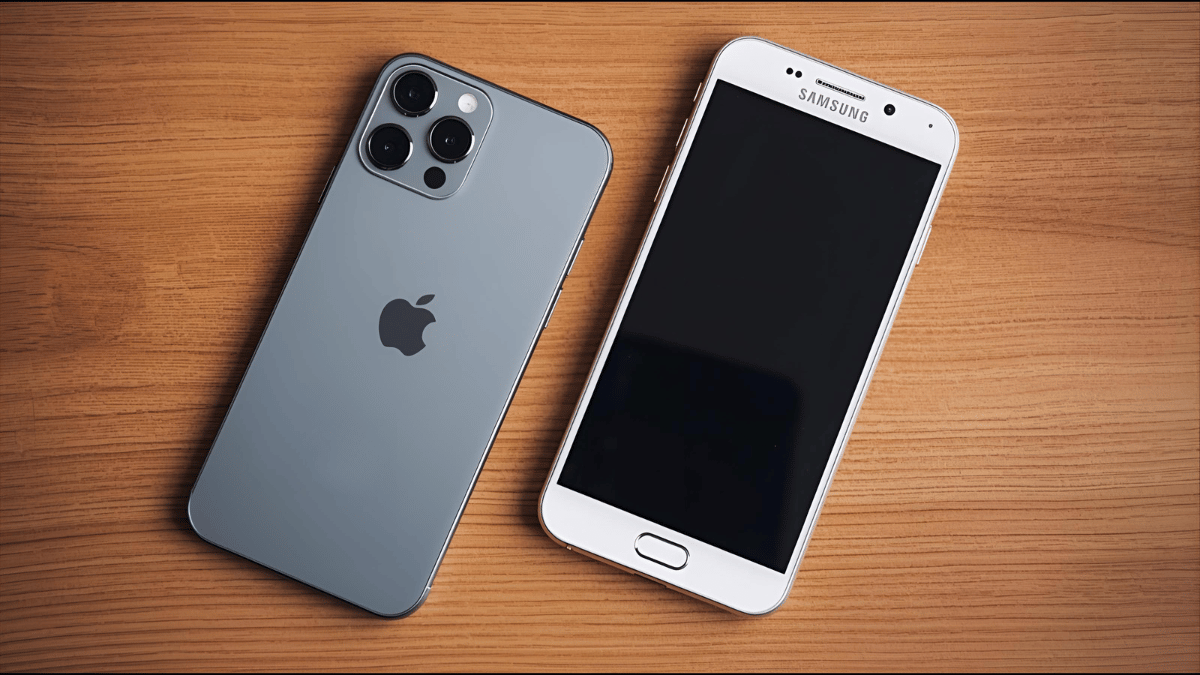When it comes to smartphones, one question never seems to fade away: which is better, iPhone or Samsung? In every corner of the world, from casual conversations at tea stalls to heated debates among tech enthusiasts, people hold strong opinions. Some praise the iPhone for its prestige and seamless integration, while others defend Samsung and the Android ecosystem for its flexibility and practicality.
Recently, during a conversation in Peshawar, a tech-savvy individual shared a perspective that highlights more than just technology—it reveals how society often connects identity and status with the phones we carry.
The iPhone Symbolism
According to him, spotting an iPhone user is easy. Many iPhone owners carry their devices in a way that makes them instantly visible, especially the signature three-camera setup protruding from their pockets. It’s not just about the phone’s utility—it’s about the statement it makes. Owning an iPhone, in his words, is often linked to style, status, and even a certain mindset.
Critics argue that while the iPhone is sleek and powerful, it is also restrictive. Downloading applications can be complex, and many services require payments that Android users often bypass with ease. Yet, despite these limitations, people still spend staggering amounts on iPhones. Why? Because in society, the device has become a marker of prestige.
The Samsung Argument
Samsung users, on the other hand, are often portrayed as more practical. Their devices are tucked neatly away in their pockets, offering just as many features—sometimes more—without the same societal expectations. The Android ecosystem provides flexibility, a wide range of applications, and affordability across different models. For many, Samsung offers both performance and value, without the weight of “showing off.”
Phones and Social Status
The debate over iPhone vs Samsung often transcends technology. It touches on deeper issues: why do people feel the need to showcase their devices as symbols of pride? For some, the phone is no longer just a tool for communication—it is a representation of wealth, class, and even social standing.
This behavior reflects a broader truth about society: when respect and recognition are tied to material possessions, the outcome is often hollow. Prestige earned through possessions is temporary. Youth fades, trends shift, and wealth can be lost. When dignity is measured by a device, it becomes fragile and short-lived.
A Reflection on Wealth and Legacy
The conversation also opened a wider reflection on wealth, family, and values. Just as iPhones are used to signal status, wealth often becomes a contested symbol in families. In some cases, wealthy children grow impatient for their inheritance, treating their parents as obstacles rather than elders deserving respect. Stories of heirs stopping their fathers from remarrying after their mothers’ passing are not uncommon. Why? Because they fear wealth may be shared with another.
In contrast, poorer families often display stronger bonds. A father in such a family may remarry after loss without resistance, because respect, rather than wealth, defines the relationship. This shows how money, when not balanced with values and faith, can corrupt even the closest ties.
Beyond the iPhone vs Samsung Battle
So, which is better—iPhone or Samsung? The truth is, it depends on who you ask. For some, the iPhone represents elegance, exclusivity, and the Apple ecosystem. For others, Samsung stands for practicality, variety, and freedom. Both are remarkable in their own ways, yet both are just devices.
What truly matters is not whether one owns an iPhone or a Samsung, but how we view them. If a phone is a tool for productivity, communication, and creativity, it serves its purpose. But if it becomes the yardstick for respect, dignity, and worth, then society has misplaced its values.
At the end of the day, no phone—whether Apple or Samsung—can replace character, respect for parents, or the values we pass on to the next generation. Technology evolves, but dignity is something we must safeguard through our actions, not our possessions.

